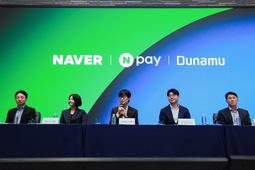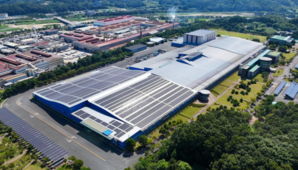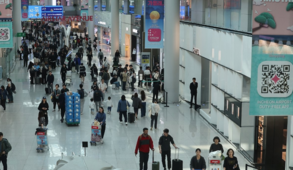
[News Space=Reporter seungwon lee] Daewon Pharmaceutical (CEO Baek Seung-yeol) has been hit with a 'profitability warning light' as its operating profit and net profit both declined despite sales growth last year.
According to the Financial Supervisory Service's electronic disclosure system on the 20th, Daewon Pharmaceutical's consolidated sales in 2024 increased by 13.5% from 526.9 billion won the previous year to 598.1 billion won. However, operating profit, a qualitative indicator, decreased by 12.4% from 32.2 billion won the previous year to 28.2 billion won, and net profit also decreased by a whopping 62%, less than half, from 23.5 billion won the previous year to 9 billion won.
The operating profit ratio was 4.7%, down from the previous year (6.1%). In addition, both operating profit and net profit have been on a downward trend for the third consecutive year. Operating profit fell to 43 billion won in 2022, 32.2 billion won in 2023, and 28.2 billion won in 2024, and net profit also showed a sharp decline, falling to 30.6 billion won in 2022, 23.5 billion won in 2023, and 9 billion won in 2024.
The main reasons for the decline in profitability are identified as a combination of risks, including sluggish performance of major items, a surge in selling and administrative expenses, and high-intensity investigations by regulatory authorities.
In particular, sales management expenses increased by 14.7% to KRW 237.2 billion compared to KRW 206.8 billion the previous year, and fixed cost items such as advertising and publicity expenses of KRW 26.1 billion, labor expenses of KRW 137.2 billion, and commissions and sales promotion expenses of KRW 65.4 billion all increased significantly. Aggressive marketing and personnel expansion contributed to sales growth, but they actually acted as a burden on profitability.
Daewon Pharmaceutical's dividend for 2024 is 6.36 billion won, and the dividend rate is 0.56% (based on common stock). Of this, the dividends taken by the largest shareholders and special related parties, such as the second generation of the founders (Vice Chairman Baek Seung-yeol, Chairman Baek Seung-ho) and the third generation (CEO Baek In-hwan, Managing Director Baek In-young, etc.), are estimated to be around 2.4 billion won.
Dividends were paid out at 4.1 billion won in 2022 and 7.3 billion won in 2023. Retained earnings increased slightly to 262.1 billion won compared to the previous year (255.8 billion won).
The total compensation paid to the six key executives (three registered directors and three auditors) was 1.4 billion won, and the average compensation per person was 233 million won. The average compensation of the three registered directors (Baek Seung-ho, Baek Seung-yeol, and Baek In-hwan) was 432 million won, and the average compensation of the three audit committee members (Bang Yong-won, Lee Dong-hee, and Kim Rak-hyeon) was 35 million won.
The total compensation paid to directors and auditors in 2024 is 3.964 billion won (3.776 billion won for 9 directors and 188 million won for 2 auditors). The total number of employees is 1,332, including 1,280 full-time employees and 52 temporary employees, and the total salary of employees is 116.3 billion won, and the average salary per person is 77 million won (90 million won for men and 51 million won for women).
Among the main items, the brain function improvement drug 'Alpocholine' showed poor performance with sales of 15 billion won in 2024, a 21% decrease from the previous year. The remaining main products, such as Kodaewon Forte (S), Peluvi, and Tijiphenon, showed increased sales, but the poor performance of Alpocholine weighed on the overall performance.
In addition, rising raw material prices, intensifying competition in the domestic market, a temporary decline in profitability due to the consolidation of subsidiaries, and a deterioration in financial soundness due to an increase in short-term borrowings and convertible bonds all contributed to a decline in both operating profit and net profit.
Special features include a one-time loss (loss from discontinued operations of KRW 1 billion) due to the consolidation of the cosmetics business division (SD Biotechnology) and an increase in allowance for doubtful accounts (allowance for doubtful accounts receivable of KRW 9.8 billion).
Due to the structure of pharmaceutical distribution, there is a high risk of collection of 76.8 billion won in accounts receivable due to many credit transactions with business partners. Although internal control policies such as new customer credit rating reviews are in operation, the possibility of financial loss due to business partner insolvency still exists.
Short-term borrowings increased by about 15 billion won from the previous year (62.9 billion won) to 77.9 billion won. Cash and cash equivalents also decreased by 13 billion won from the previous year (30 billion won) to 17 billion won.
Short-term borrowings (KRW 77.9 billion) amount to approximately 4.6 times the cash and cash equivalents (KRW 17 billion). Also, the ratio of cash equivalents is low compared to current liabilities (KRW 200.8 billion). Short-term borrowings are liabilities that must be repaid within a year, showing that it is impossible to repay short-term borrowings with cash alone in the short term.
When evaluating the liquidity of Daewon Pharmaceutical based on a comparison of short-term borrowings and cash equivalents, the short-term borrowings are considerably larger than cash and cash equivalents, so the structure is burdensome in terms of short-term liquidity. It is a situation where short-term liquidity risk must be managed through collection of accounts receivable, sale of inventory assets, additional financing, extension of the maturity of existing borrowings, and cash flow from operating activities.
The debt ratio has already exceeded 100%. Daewon Pharmaceutical's debt ratio is about 105% (total capital of 284.5 billion won, total debt of 298.8 billion won), which is somewhat high compared to the pharmaceutical industry average of 60-80%.
The main reasons are an increase in interest-bearing liabilities such as short-term borrowings and corporate bonds, and the procurement of external funds for business expansion (acquisition of SD Biotechnology). From a financial stability perspective, this is a situation where short-term liquidity management and debt reduction efforts are required.
To make matters worse, major subsidiaries such as Daewon Healthcare and Daewon Meditech are in a state of capital impairment. Despite the owner family’s concurrent management, the performance of subsidiaries is sluggish, putting a burden on the financial soundness of the entire group.
A pharmaceutical industry insider pointed out, “Daewon Pharmaceutical urgently needs to improve the efficiency of its sales and administrative expenses, diversify its product portfolio, and reorganize its strategy to conquer the global market,” adding, “Without improving profitability, its long-term growth could be hindered.”
A corporate financial analysis expert analyzed, "Daewon Pharmaceutical is facing various structural pain points such as a decrease in respiratory device sales due to the transition to endemics, burden of R&D investment, weak governance structure due to family management, deterioration of subsidiary management, environmental and regulatory risks, product safety controversy, and risk of accounts receivable collection." He added, "These weaknesses are expected to act as burden factors not only on short-term performance but also on mid- to long-term growth potential and corporate value."
Meanwhile, Daewon Pharmaceutical was founded in Busan in 1958 by its founder, Chairman Baek Bu-hyeon. It was incorporated in 1961, and as of 2024, 67 years have passed since its founding date and 64 years have passed based on the date of incorporation.
Sales by business division are 89.5% for pharmaceuticals, 5.8% for cosmetics, 4.7% for health functional foods, and 0.1% for other divisions. By major product, 'Kodaewon Forte/S' accounts for 13.5%, and 'Pelubi (including extended-release tablets and S tablets)' accounts for 9.3%.
The number of voting shares (stake ratio) of the largest shareholders and special related parties, including Baek Seung-yeol 11.34%, Baek Seung-ho 9.63%, BAEK JONATHAN IN 5.8%, Yang Jae-jin 3.83%, Baek In-yeong 2.92%, Baek In-seong 1.14%, Baek In-jae 1.14%, Baek Hae-seon 0.50%, Yoon Kyung-sil 0.42%, Nam Gyeong-woo 0.34%, and Shin Jeong-yoon 0.01%, is 8,315,145 shares in total, or 37.08%. A foreign institutional investor, Fidelity affiliated fund, holds a 10.06% stake.
The second generation of the founders (Vice Chairman Baek Seung-yeol, Chairman Baek Seung-ho) hold about 20% of the shares, and the third generation (CEO Baek In-hwan, Managing Director Baek In-young, etc.) hold close to 10%. Considering the complex characteristics of the management structure, such as the stake variables of external institutional investors, the dispersion of the owner family’s stake, and the proportion of minority shareholders, concentration of shares and defense of management rights are considered important tasks in the future third-generation succession process.
























































